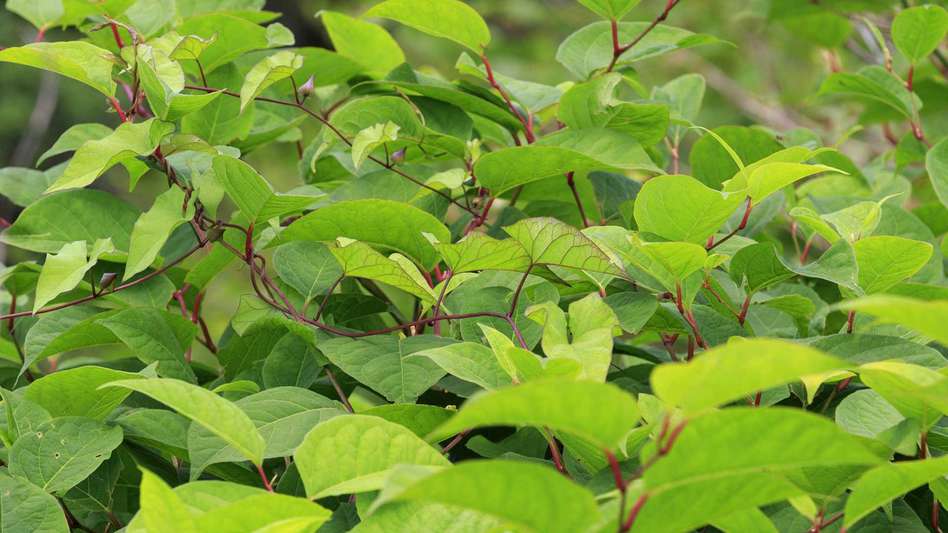Spread of Japanese knotweed - a legal problem?

The County Court decision on the case of Williams v Network Rail Infrastructure Ltd February 2017 demonstrates the perils of allowing known invasive species of plant to spread onto neighbouring land.
The court found that Network Rail had caused an ‘actionable nuisance’ by failing to take reasonable steps to prevent the spread of Japanese knotweed from its railway embankment to neighbouring houses. National Rail was ordered to pay each claimant damages to treat the knotweed and compensate homeowners for the fall in value of their homes. The Claimant’s bungalow, which was previously worth £135,000, is now valued at £69,000. Crucially, the judge stressed that, if Network Rail failed to get rid of the knotweed, the Claimants could claim for the full drop in the value of their homes
Japanese knotweed is an invasive plant, first introduced to Britain by the Victorians. Its rapidly spreading roots (rhizomes) can damage foundations. Consequently, it can affect the value of your property, its insurability and its marketability.
The Williams v Network Rail case is notable because it determined that:
- Japanese knotweed was an ‘actionable nuisance’ before it caused physical damage to the neighbouring land, because it effected the amenity value of that land and reduced its value
- The court decided that Network Rail understood the potential impact of Japanese knotweed and the damage it can cause
Until this decision, there was no requirement on landowners to remove the source of the knotweed infestation but only to remove it from the land it has spread to.
So, what should you do if you find Japanese knotweed on your property? Unless it spreads, you’re not required to remove Japanese knotweed from your own land but you may be liable to pay compensation for an adjacent owner’s loss along the lines of above. Worse still, you may be subject to a continuing injunction against re-infestation. Disposing of Japanese knotweed is an expensive and time-consuming process, but dealing with it proactively could save you a lot of bother in the long run.
This article was originally published in July 2017 in the British Farmer & Grower - the NFU’s award-winning members’ magazine: https://www.nfuonline.com/home/magazine/
Tees is here to help
We have many specialist lawyers who are based in:
Cambridgeshire: Cambridge
Essex: Brentwood, Chelmsford, and Saffron Walden
Hertfordshire: Bishop's Stortford and Royston
But we can help you wherever you are in England and Wales.
Chat to the Author, Sara Stabler
Senior Associate, Dispute Resolution and Litigation, Cambridge office
Meet Sara
- Areas of expertise
- Accreditations
- Testimonials
Legal 500 UK 2024
'Sara Stabler is a remarkably thorough and careful solicitor, but also very pragmatic and down to earth'
Legal 500 UK 2023
'Sara Stabler and her team are consistently really strong performers. They have excellent work and it is clear that their clients receive really good service'
Legal 500 UK 2021
"Sara and James are truly excellent exponents of the legal profession and, in terms of ability and incisive thought and delivery, combined with response time, leave contemporaries in some other organisations in the shade."
Legal 500 UK 2021
"Sara Stabler brings a pragmatic approach to litigation, providing realistic solutions for her clients."
Legal 500 UK 2021
"I have worked with Sara Stabler, senior associate at Tees Law, on two matters. One was a complex commercial dispute with a great deal of personal animosity between the parties and the other a challenging trust case. In the trust case, Sara showed a maturity beyond her years, standing up to difficult bullying opponents and, frankly, out-lawyering them. In the other, she conducted the negotiation of a settlement with consummate skill, never overstating her case but arguing with forceful reasoning. In my book, she is definitely one to watch for the future."
Legal 500 UK 2021
"Sara Stabler and Katie Hayes make an outstanding team of advisers. They combine their qualities to provide excellent service to clients. One of the best I have come across."
Legal 500 UK 2021
"Sara will fight for you all the way, if she feels what you have done is right. If anyone has a litigation issue, I would recommend Sara."



